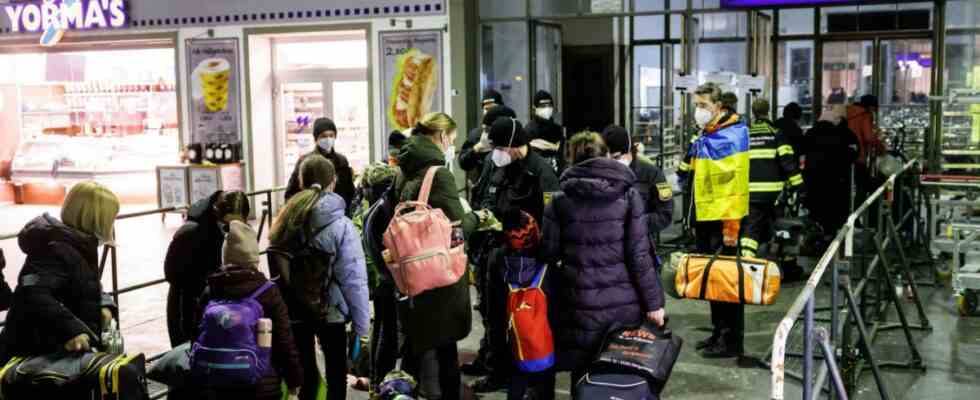Are refugees from Ukraine treated unequally? Is the group of so-called third-country nationals discriminated against because the police at Munich Central Station take their fingerprints? There is concern among refugee helpers that racism could creep in here.
Most of the refugees are Ukrainian citizens, but there are also third-country nationals from Ukraine. People with a passport from another country who were in Ukraine when the war began and who also fled from Putin’s bombs, such as students from an African country. They are accepted in Germany like Ukrainian nationals. And yet the groups are treated differently when they arrive, in the Starnberg wing station, where the police headquarters registers the arrivals.
If you have a Ukrainian passport with you, you only have to hand over the paper for a copy, the police take the names of those who arrive, and that’s it. Third-country nationals, on the other hand, are registered by the police, explains police spokesman Marc Aigner. Even if the person has a passport and proves that they were legally in Ukraine when the war started. The police take a picture of this person and take fingerprints.
This is not discrimination, emphasizes the speaker and explains the background. Regardless of the war, Ukrainians are “positive citizens”. This is what police jargon calls people from a country that is on the so-called positive list. Citizens of these countries can enter without a visa and stay for three months, for example as tourists.
Anyone who has the nationality of a country that is not on the positive list and enters Germany without a visa is routinely subject to illegal entry procedures. In the case of asylum seekers, this usually happens, whereby the procedure is suspended after the asylum application has been submitted; in the end it usually has no consequences for the refugees. Such a procedure should actually also be initiated for third-country nationals from Ukraine. According to the regulation of the Federal Ministry of the Interior, however, according to the spokesman, there is an exception for this group: the state refrains from possible criminal prosecution. The identification service treatment, however, continues to take place.
Thomas Lechner, city councilor for the left, finds this “questionable”. It is psychologically extremely unfavorable to treat the refugees unequally, “they all come from the same war”. The registration has been running smoothly so far, emphasizes police spokesman Aigner. Interpreters are used to explain the procedure to those who have arrived. Everything is “completely cooperative”.

